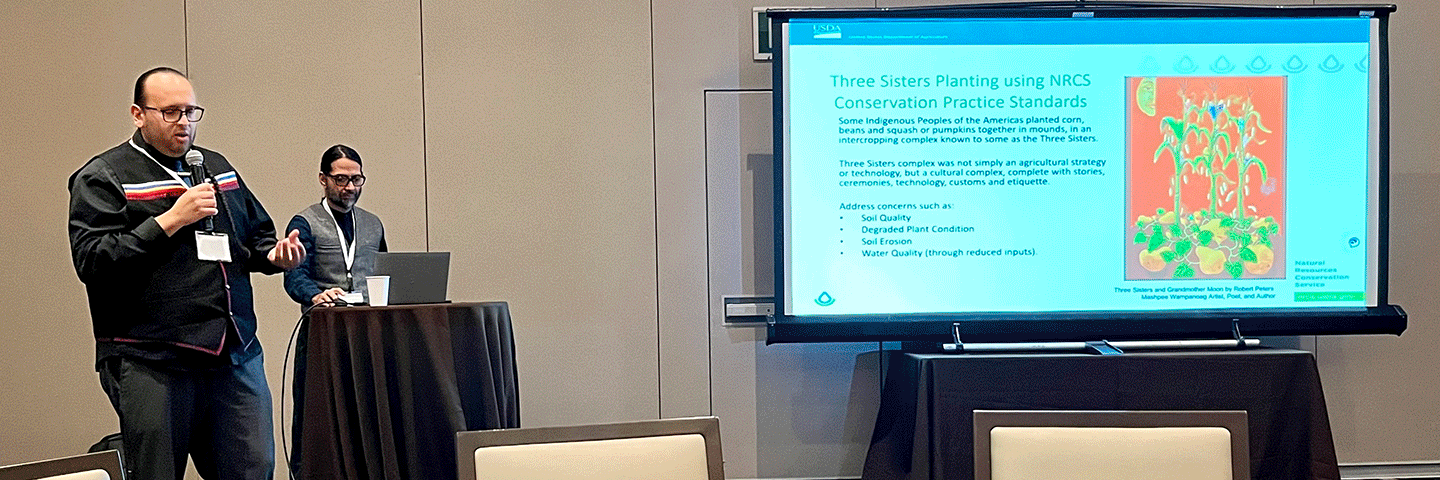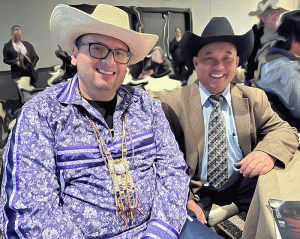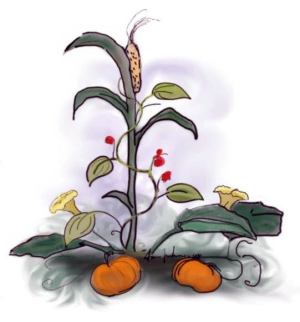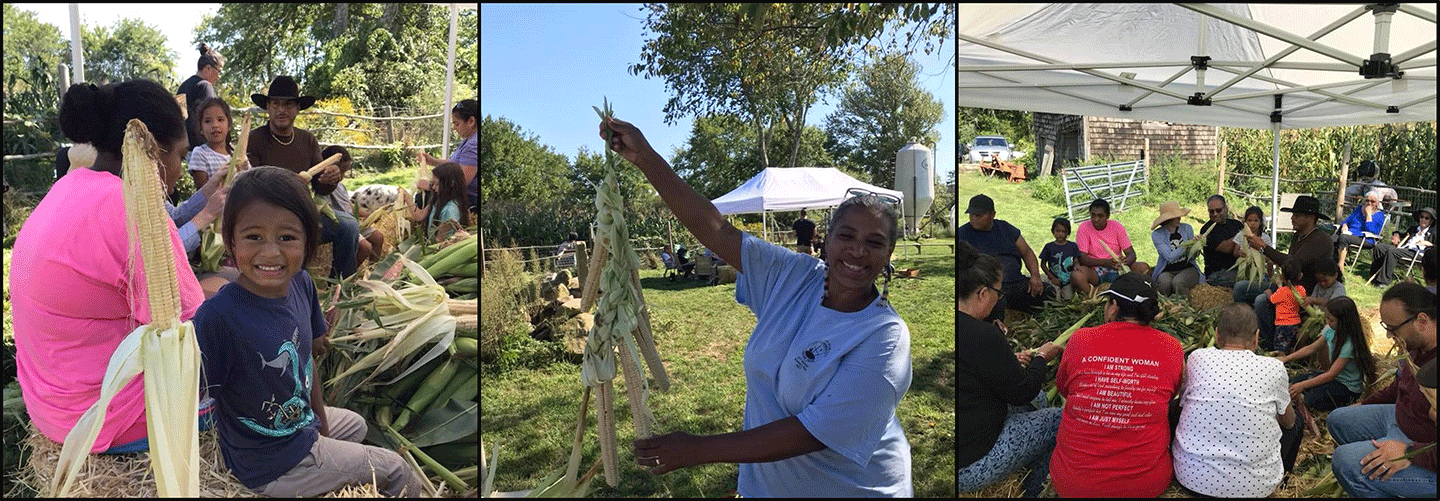Incorporating “Three Sisters Planting” into NRCS Conservation Practice Standards

In early December, RI State Resource Conservationist Cassius Spears delivered a breakout session presentation on Three Sisters Planting using NRCS Conservation Practice Standards to participants at the national Intertribal Agriculture Council (IAC) Annual Conference held Dec. 4-8 in Las Vegas, NV.

State Resource Conservationist Cassius Spears (along with NRCS RI State Conservationist Phou Vongkhamdy, Management & Strategy ASTC Walter Marshall, State Engineer Darrell Moore, and Outreach Coordinator Julie Wright) participated in this year’s national Intertribal Agriculture Council (IAC) Annual Conference held Dec. 4-8 in Las Vegas, NV. This year’s conference included the highest number of NRCS participants ever, reflecting NRCS Chief Terry Cosby’s focus on building on our past tribal relations efforts. SRC Spears, a member of the Narragansett Tribe, delivered a breakout session presentation on Three Sisters Planting using NRCS Conservation Practice Standards to conference participants.
NRCS prides itself on being a learning-friendly environment with conservation practice standards that can be adapted to incorporate Indigenous Knowledge, also known as Indigenous Traditional Ecological Knowledge or Native Science, to improve or expand existing NRCS practices or create new scenarios. Indigenous Knowledge refers to the evolving knowledge acquired by indigenous peoples over hundreds or thousands of years through direct contact with the environment. This knowledge is specific to a location and includes the relationships between plants, animals, natural phenomena, landscapes, and timing of events that are used for lifeways, including but not limited to hunting, fishing, trapping, agriculture, and forestry.
Indigenous Knowledge can be summarized in the following way:
- Place-based, indigenous to a specific area
- Culture- and context-specific
- Non-formal knowledge
- Orally transmitted and generally not documented.
- Dynamic and adaptive
- Holistic in nature
- Closely related to survival and subsistence for many people worldwide (United Nations Educational, Scientific, and Cultural Organization, 2003)

NRCS worked with the Narragansett Tribe to develop a conservation plan for their Tribal Farm that incorporated both NRCS conservation practices to address resource concerns and indigenous practices like the Three Sisters. The Narragansett people planted the corn, beans, and squash (or pumpkins) in mounds using an intercropping system known as the Three Sisters. The corn stalks provided physical support for bean vines; beans provided nitrogen to the soil through nitrogen-fixing rhizobia bacteria; and squash and pumpkins provided ground cover to suppress weeds functioning as living mulch. It addressed natural resource concerns like:
- Soil Quality
- Degraded Plant Condition
- Soil Erosion
- Water Quantity
The Narragansett people view the Three Sisters not only as an agricultural strategy, but as a cultural complex complete with stories, ceremonies, customs, protocols and etiquettes. As a result of NRCS support, the Tribal Farm celebrated a successful harvest (below) while preserving traditional knowledge through community practice.

Additional Information
Agricultural Management Assistance - Rhode Island
The Agricultural Management Assistance (AMA) helps agricultural producers manage financial risk through diversification, marketing or natural resource conservation practices.
Learn MoreConservation Stewardship Program - Rhode Island
The Conservation Stewardship Program (CSP) helps you build on your existing conservation efforts while strengthening your operation.
Learn MoreEnvironmental Quality Incentives Program - Rhode Island
The Environmental Quality Incentives Program (EQIP) provides financial and technical assistance to Rhode Island farmers, woodland owners, oyster growers, livestock producers, and urban growers to address natural resource concerns in the Ocean State.
Learn More
